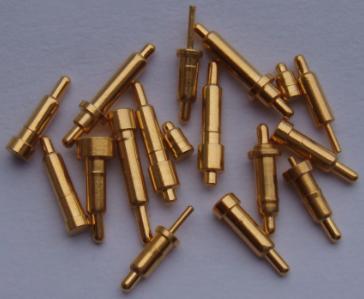Time:2025-10-14 Views:1 source:News

The needle tip hardness of pogopin probes is a vital characteristic that impacts their wear resistance, durability, and electrical contact quality. The tip of the pogopin probe is the part that directly makes contact with the mating surface, and its hardness determines how well it can withstand mechanical stress, abrasion, and deformation during use.
Hardness is typically measured using various scales, such as the Rockwell scale, Vickers scale, or Brinell scale. For pogopin probe tips, the Vickers hardness test is often preferred due to its ability to provide accurate measurements on small and thin - walled components. The hardness of the probe tip material is mainly influenced by the choice of metal and the heat treatment process. Tungsten carbide and hardened stainless - steel are popular materials for pogopin probe tips because of their high hardness and wear - resistant properties. Tungsten carbide, for instance, has an extremely high hardness, making it ideal for applications where the probe tip needs to penetrate or maintain contact with hard surfaces without deforming or wearing down quickly.
Heat treatment processes, such as quenching and tempering, can further enhance the hardness of the probe tip. Quenching involves rapidly cooling the heated metal, which increases its hardness by altering the crystal structure. Tempering then follows to relieve internal stresses and improve the material's toughness, preventing brittleness. Properly heat - treated pogopin probe tips can achieve a balance between high hardness and sufficient toughness, ensuring they can endure repeated contact cycles without cracking or chipping.
The needle tip hardness of pogopin probes has a direct impact on their performance in different applications. In precision electronic devices, where the probe tip needs to make contact with delicate components, a harder tip can prevent damage to the mating surface while maintaining a stable electrical connection. In industrial testing equipment, probes with high - hardness tips can withstand the rigors of frequent use on rough or abrasive surfaces, reducing the need for frequent replacements. Measuring and controlling the needle tip hardness during the manufacturing process is essential for producing pogopin probes that meet the stringent requirements of various electronic and industrial applications, ensuring long - term reliability and consistent performance.
Read recommendations:
Low resistance Magnetic PogoPin
Mass production Magnetic PogoPin supplier